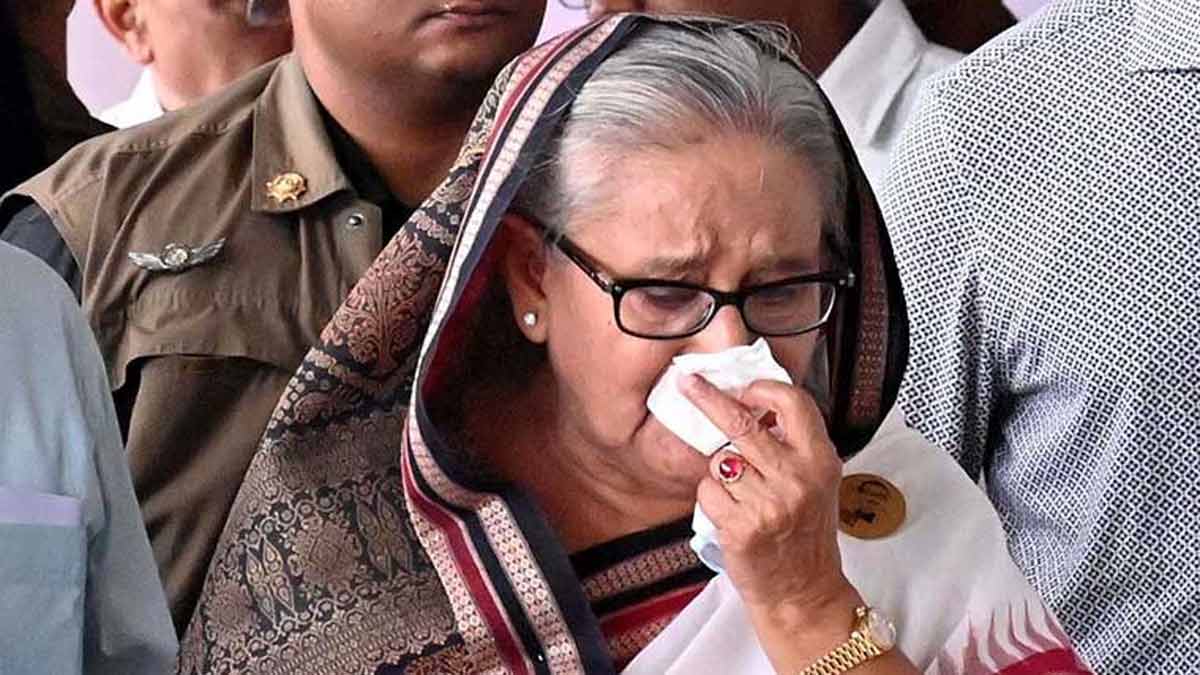India on Monday confirmed that it had received a formal note from Bangladesh demanding the extradition of ousted prime minister Sheikh Hasina.
The government, however, refused to make any comment on Dhaka's missive.
"We confirm that we have received a note verbale from the Bangladesh High Commission today in connection with an extradition request. At this time, we have no comment to offer on this matter," Ministry of External Affairs spokesperson Randhir Jaiswal said.
Earlier in the day, Bangladesh Foreign Affairs Adviser Touhid Hossain said Dhaka has sent a formal note to the Indian government, saying the country wanted Hasina back for the judicial process.
Home Advisor Jahangir Alam also confirmed the interim government's communication with New Delhi on this issue.
READ: Will Jamaat-e-Islami find a lasting role in Bangladesh's political system?
Hasina has been living in exile in India ever since she was ousted from power following a nationwide anti-government protests.
Sending Hasina back would be a tough call for New Delhi which has shown no inclination to extradite the 77-year-old leader to its eastern neighbour.
There is an extradition treaty between India and Bangladesh, but it does allow the refusal of extradition requests if the offence is of a political nature.
India and Bangladesh had built up strong bilateral relations during Hasina's time in office, but New Delhi also admits that sheltering her for a longer period in the country would hamper its efforts to build strong ties with the interim government.
READ: Treatment of minorities will continue to stir Bangladesh's politics and shape its India ties
The relations between the two countries took a hit after Bangladesh witnessed rampant cases of attacks on religious minorities, especially Hindus. India has raised its concerns during Foreign Secretary Vikram Misri's recent visit to Dhaka, though Bangladesh has accused Indian media of exaggerating the situation of minorities in the country.



